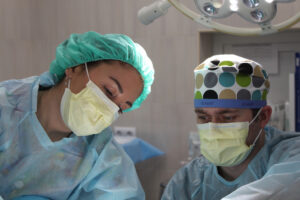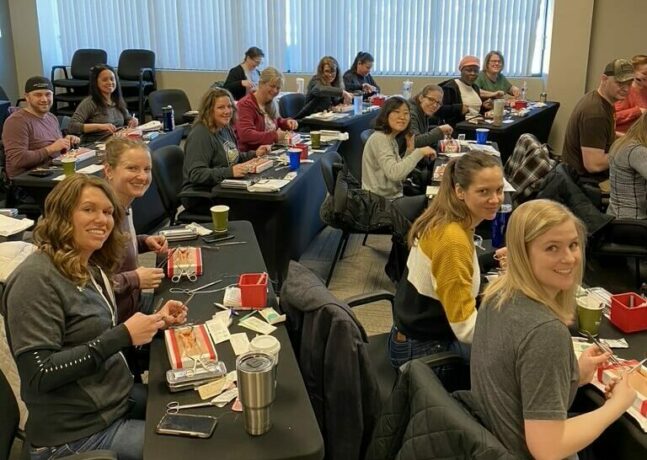Let’s face it: if you don’t use it, you lose it, and when it comes to medical procedures, the last thing you want to do is make errors affecting patient safety or outcome. Here is a list of ways you can stay up on your procedural skills as a nurse practitioner or physician assistant.

1. Take an Accredited Course
One of the most common and formal ways to either learn a new skill or refresh your skills is to consider a hands-on workshop hosted by companies such as Skills On Point. This provides you the benefit of a conference-style experience where you can network and meet other providers; you can most certainly use your CME money to pay for the event, as all the nursing ceu courses come with accredited continuing education hours and certificates of completion.
2. Learn On the Job
Whether new to your role or new as a provider, your onboarding typically includes some level of oversight from what you (hopefully) learned in your school’s didactic and clinical components. As you work with your peers who provide the same procedural skills to their patients, you can most typically glean from your peers what is best practice but do remember that each hospital setting is unique with what you are allowed to perform. If you are no longer in orientation, don’t sweat it! Just reach out to the person who did your initial onboarding and see if they can help proctor you for some more cases if you are not comfortable as a backup.
3. Precept a Student
If you already have the credential to perform specific skills and want more practice, one of the easiest ways of getting to the front of the line to do the procedure is to get a student of your own. Yes, this does require a bit more work on your part since not all students are at the same level of proficiency or have an interest in all the same skills you perform, but this may be a great scapegoat for you to get the opportunity to be in the room when the procedures happen and keep your skills sharp. Plus, it’s a proven method to improve recall by teaching what you know.
4. Go on for more School or Certification
Not all skills are as simple as see one, do one, teach one. Many require specialty training, fellowships, and certificates, such as becoming a first assistant. If you are looking for something more complex and advanced such as this, you likely will need to seek a third-party organization with an accredited training program for your procedural skills.
Fun fact: No nurse practitioner certification includes operative medicine, and since first assisting is such a unique skill set that is allowed by NP practice, it is wise to get a formalized training in this rather than to rely on a surgeon to train you on the job. A great course for first assisting (and the course I took) is the National Institute of First Asssisting, INC, aka NIFA. You can learn more about my experience with them here.
5. Go on Medical Service Trips
This is probably not an option for everyone, but a great way to expand your clinical practice and use every fiber of your scope of practice is to go on a medical missions trip. Not only will you be giving back to a community in desperate need of your assistance, but you also expect to see and do more than your daily life likely affords in a clinic or procedural area. If “Medical MacGuyvery” was a merit badge, you’d certainly expect to earn it on a medical mission where you have to make do with less and recognize just how much you can do with your licensure. Plus, you will change lives in the process.
6. Purchase or Make your own Simulation Gear
There is nothing like living in the technology age, and with access to the internet and all its dark alleys, the second-hand market for medical equipment for training use is flourishing. If a particular skill performed infrequently tends to be a thorn in your side, getting repetition in a low-risk environment is probably the easiest way to gain meaningful mastery. For those who consider themselves a bit of a scientist also, you can get a 3d printer and make your training supplies. Who knows, you just might become a patent-holder on a new technique or sell your IP to another training company and cash out in the process! Make sure you do your homework for what is allowed to purchase or sell.
Sidenote: The FDA requires a particular disclaimer to be placed on the sale of medical equipment, and in some cases, it requires your purchase to include an affidavit to confirm you are not going to use that camera head and light source to do laparoscopic surgery in your basement on neighborhood squirrels.
7. If all else fails, Start a Training Company
I say this tongue in cheek as the owner of Skills On Point. Still, nothing makes you remember what you forgot, like surrounding yourself constantly with professionals possessing expert clinical skills and years of experience. This benefits learners and those who relearn the more infrequently performed skills, including myself. Just like football, you’re only as good as your next game score, and on any given Sunday, your skills will get tested in a new challenge. Here’s hoping you took advantage of whatever opportunities you had, perhaps of the list above or perhaps entirely different methods I failed to mention, and your patient will ultimately benefit from your dedication to the discipline of advanced practice nursing or physician assistant practice.
If you’re interested in learning more about the amazing array of procedural skills taught in both large classes and private small sessions either at our sim lab or brought to you, check out www.skillsonpoint.com or reach out directly to me at john@skillsonpoint.com for more info about how we can raise your bar and lower the barriers to providing the care your patients deserve.



